Recovering from destructive relationships
Supporting people to recover from destructive relationships has been a pillar of my work for some time now. I thought it would be good just to share a few general insights and tips around this.
- Remember first of all that your emotional reality is your reality.
I often work with people questioning themselves and if it is them who has the ‘problem’ . The great thing about working with this issue is that we never need to finger point and blame another person. People often get hung up on reading about narcissistic traits and wondering if the other person is maybe even diagnosable on this level but this isn’t really important to your journey.
The fact that you are feeling a certain way and are experiencing something as problematic enough to reach out for support shows you have a level of disturbance within you which is in itself worthy of respect.
Everyone has their own emotional reality and when we can just honour this as your ground zero we can start to explore like archeologists. We can explore what is/has been occuring in the relationship and how it is making you feel and what this is this bringing up for you.
My being with and honouring this in a safe space we can build esteem, boundaries, and a new foundation to communicate from.
- Have a regular self connection practice.
I’ve known for many years now as a therapist that self connection is vital but I’d say most clients I work with do not have a committed practice at least at the start of therapy.
By self connection we just mean something which is connecting with who you are and your own emotional flow as to what is going on in life.
I personally find a combination of meditation plus journal writing to be fantastic for this and are often my recommendations to try to start with.
I find an easy start for meditation is to try a guided meditation. There are plenty online but one I often recommend if you have spotify is Amanda Ferguson Life works and the third track which is Journey to the sacred self.
Amanda was my first Counsellor and this track is perfect and in fact even talks you through the purpose of meditation to move into slower alpha brain waves (rather than day to day beta brainwaves). The science shows that 20 minutes of alpha state per day for 3 weeks leads to a marked improvement in physical, emotional, and mental health.
In addition to this a practice of journaling can be really powerful. The key here is for your journaling to be a ‘stream of consciousness’. You don’t need to focus on anything in particular, just let whatever is going on for you just come out. There are no hard and fast rules on this. Some people say to practice first thing in the morning. I personally think a pen and paper practice is better than on the laptop.
I find that journaling allows us to go that bit deeper to really dig more into what we would call our shadow and get out the truth of how we are feeling about stuff.
I feel like meditation can be like the type of lubricant to go in between our unconscious and conscious and let stuff come through and the journaling is the self archeological work.
Counselling and Coaching then provides the professional experience for the self connection to go deeper. It’s important for this to be an integrated experience so we are having the needed professional support while also doing our own press ups so to speak.
- Practice adult / clinical communication.
I always teach individuals and couples to work on staying in adult communication style which is characterised by being assertive, honest, time appropriate, and addressing our wants and needs. This is said to be the only empowered type of communication.
The less empowered types are child communication which is passive and our needs are not being met or ‘parent’ whereas we are being aggressive and ignoring the rights of others.
We can take our own responsibility to be in ‘adult’ but we need to keep in mind that we can never control the other person. In the case of moving out of a destructive relationship a more ‘clinical’ working could be what is required and in this case we are actually setting very strong boundaries and behaving in a way to keep us protected but without letting the other person know. I would recommend to search ‘Amanda Ferguson dealing with difficult people’ on google to see the web page with some great strategies of working clinically which my clients find helpful.

